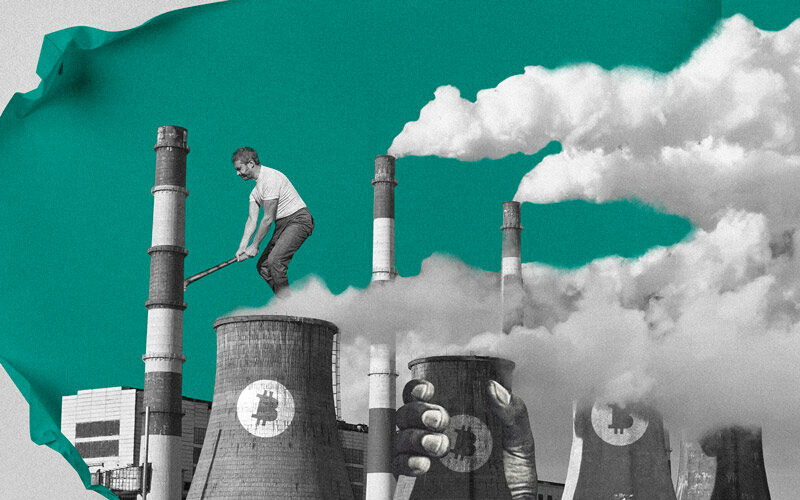In 2021, Mark Zuckerberg announced the “next generation of the internet“, the Metaverse. In it, users create avatars, buy virtual outfits, attend concerts, and now – just like in real life – be priced out of the housing market.
Prices of virtual plots range from a few thousand to a few million. Buyers use cryptocurrencies like AXS, SAND, and MANA.
Most million dollar sales are being made on commercial “land”. NFT investors Republic Realm are the biggest buyers-in, owning around 2500 plots across 19 virtual worlds in a deliberate diversification strategy. They made one of the most expensive purchases on record – a commercial plot in The Sandbox for USD $4.3 million.
The average price for a plot of residential land is “only” $12,000. But with shitty graphics, the risky nature of new tech investments, and an uncanny resemblance to Second Life, the Metaverse property market is losing ground.
In 2022, the Metaverse lost USD $2.81 billion. In the words of MetaSpace REIT CEO Eric Klein: “Metaspace had so much hype at the beginning of the year and we kind of lost it.” He still believes the virtual market will bounce back and “come to fruition”.
Second Life redux
Mark Zuckerberg believes he revolutionized the virtual space with the Metaverse. But many of Meta’s concepts came from Philip Rosedale’s 2003 VR game Second Life. When it comes to innovative design, there isn’t anything new (aside from unwieldy VR headsets).
The primary difference is mass monetization.
Meta hopes consumers will buy licensed NFTs from the companies like Gucci, Forever 21, Coca-Cola, and Chipotle who’ve already jumped onto the Metaverse ship. Big Tech is investing steadily into the Metaverse and predict a 39.4% annual growth rate by 2030.
Virtual Brand Group CEO Justin Hochberg is bullish, saying: “It is changing the face of consumer engagement in terms of how people find information, use information, meet people, buy things, and sell things in the virtual world and the physical world. The depth of consumer engagement is vastly more meaningful than what you can achieve on social or e-commerce [platforms].”
Exactly where this added meaning comes from is still unclear.
2022 tech on N64 graphics
Mark Zuckerberg is making big promises: his Metaverse graphics won’t be as bad as his previous selfie.
After Zuckerberg took to Facebook to post a VR selfie to announce Meta’s latest project, Horizon Worlds, it wasn’t long before people started ripping it to shreds. Why are the graphics so laughably bad on a $177 billion project?
The biggest issue is that rendering graphics in real-time environments takes a ton of processing power, and not all users have the processing speeds to handle it.
There are motion sickness implications when you run a game through a VR headset. Meta’s VR app has to run at a limited rate of frames per second to prevent it.
Zuck is promising to do better: “Major updates to Horizon and avatar graphics coming soon. The graphics in Horizon are capable of much more – even on headsets – and Horizon is improving very quickly.”
You have to wonder why – if improvements were imminent – Meta went ahead and launched before making them.
Fake estate
A lot of equity has been funnelled into this thing.
Real estate sales across four major Metaverse platforms totalled USD $501 million last year. Impressive numbers for a niche interest with a limited market.
Meta property is firmly in the realm of the non-tangible. With bricks-and-mortar property, if the market went south, you’d at least be left with some bricks and mortar. But if Metaverse fails financially and servers go down, so does your investment.
In addition, virtual real estate isn’t great for the environment. Intel estimates a 1,000% increase in computing power will be required to run the Metaverse as a whole. The Bitcoin mined to fund purchases consumes more energy annually than the entire country of Finland.
Perhaps the reddest flag of all in terms of investment potential is the infinite nature of pixelated property. Property is extortionate because developable IRL land is limited (and also extortionate). In the Metaverse, there is no limit and no scarcity.
Startups and The Sandbox
One of the many, many criticisms of the Metaverse is that it’s destined to become a digital billboard. Just another cityscape to be slathered with corporate advertisement.
But this isn’t bad news for new businesses, especially with whole new audiences to plunder.
The ‘Verse can certainly diversify your customer acquisition and marketing strategies. It’s also a new sales channel, and big brands like Balenciaga’s collab with Fortnite or Gémo vs. Animal Crossing are proving its profitability. When Nike released the CryptoKicks (which in fairness look extremely cool), it sold more than USD $11 million worth of units.
If nothing else, the Metaverse is:
Immersive, giving massive potential for storytelling and new depths of engagement and connection.
Novel, and humans like new things.
Escapist, and we need that more than ever.
What some people might see as increasing disconnection from reality, others see as a closer connection with brands, celebrities, friends, and fans.
The wise startups might choose to watch from the sidelines a little while longer. Those with intimate knowhow have an opportunity to set up a cool digital base in an as-yet uncool world. But for now, brands will do best not to make the Metaverse their permanent home.










